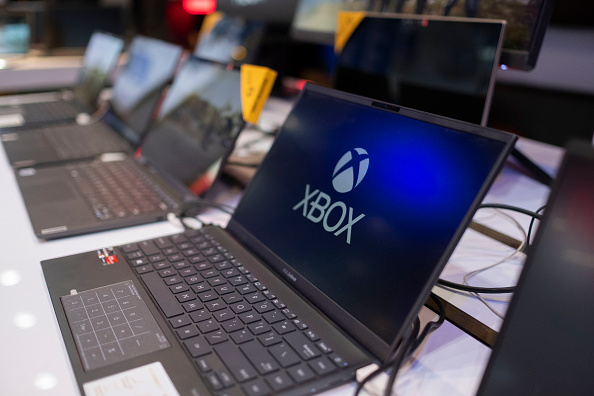If you are a gamer or esports fan looking to purchase a new PC for your gaming setup, you might be debating whether to get a laptop or gaming desktop. Traditionally, a standard tower PC has been the go-to choice. However, in recent times, gaming laptops have also been gaining some notoriety.
It is not surprising that portable PCs are becoming popular in gaming since they are lighter, slimmer, and more powerful than previous versions. However, there are still pros and cons to both options. The gaming desktop vs. laptop is still an ongoing debate, and if you are wondering which option offers the best performance, below is a breakdown of everything.
1. Portability
The first consideration is whether you prefer a machine you can take anywhere or one that is larger and bulkier but provides more customization options and ports.
Laptop
The main advantage of a laptop is its portability. You can do most of your gaming from any location with the right one. If you are often away from home, the flexibility offered by a portable machine can be a huge asset. The latest laptop models are more compact than ever before.
Therefore if you want to take advantage of offerings like Thunderbolt casino coupons to bet on your favorite fantasy football team, you can comfortably do so from a coffee shop, airport lobby, or workspace. With a traditional computer, you would be unable to do this. Gaming laptops nowadays have high-end hardware allowing pundits to play competitively and recreatively.
They also run on a battery and have a built-in screen, as well as an onboard trackpad and keyboard. You can have a desktop-like experience at home with your laptop, as long as they have the right peripherals. Overall, a gaming laptop offers versatility.
Embed from Getty ImagesDesktop
In contrast to laptops, desktops are much larger and not as portable. Even the smallest PCs still require a monitor and power outlet. Although some gamers don’t mind moving their entire tower for special occasions, most people limit their use to one location. Desktops allow extensive I/O support or, in simpler terms, the functionality to connect more external devices.
Typically these functionalities are on the motherboard or, sometimes, expansion slot devices such as a graphic card. The PC may also have extra connectivity options such as audio ports and front-facing USB. That also means available support for non-standard peripherals, multiple monitors, and more USB connection options. Generally, a desktop provides a more dynamic gaming rig.
2. Hardware upgrades
Although the laptop’s portability is one of its best features, it also presents some downsides. It is harder to upgrade a portable computer because the processor and graphic card are usually fused onto the motherboard. When this is not the case, it is often prohibited to access them. Desktops take this category because their internal components are easily accessible.
Laptop
Laptops have a compact design making them significantly challenging to upgrade. Although some may allow storage or RAM improvements, upgrading the GPU or CPU is almost always an impractical option for the everyday user. When purchasing a gaming laptop, remember that you will probably use the same components however long you own it.
Desktop
Most gaming desktop computers are upgrade-friendly, unlike laptops. Because of its modular layout, you can replace the components with relative ease, allowing you to improve your hardware whenever necessary. Instead of buying a new gaming machine when your PC ages, you’ll be able to do it incrementally. This is great if you have a limited budget.
It is even possible to upgrade pre-built PCs though it is advisable to confirm with the manufacturer to avoid violating the terms of the warranty.
3. Customization
Laptop
When getting a portable computer, you can pick from select components, including the RAM and storage, the GPU and CPU, and the display. In terms of performance, you might have some flexibility with the tuning. For the most part, you’ll be gaming with the same hardware from purchase till replacement.
Now more than ever, gamers have a diverse selection to choose their graphics. Having said so, you’ll still be picking from pre-existing ones with pretty limited customization options.
Desktop
Customization is one of the biggest pros of opting for gaming desktops. Since it is possible to replace hardware easily, fans can get exactly what they need and avoid what they don’t want. A desktop provides:
- Diverse custom hardware options
- A wide range of aesthetic choices
- Extremely regulated performance
Even with a customized desktop, it is still possible to reap from high levels of customization. Some manufacturers will let buyers choose what is incorporated into the PC before the system is assembled. It gives them the benefit of a home-built desktop.
Conclusion
Deciding on whether it would be better to buy a gaming laptop or desktop is not as straightforward as it seems. There is no right or wrong answer because none is better than the other. By assessing the different characteristics above, you’ll be able to choose the one that works best for your situation – whether it be for work, social media or just fun online gaming. Also, shop around to ensure that you ultimately buy the computer with the best specs.
Leave your comments below and let us know your thoughts!
Stay tuned to Last Word on Gaming for all the latest gaming news and reviews.




